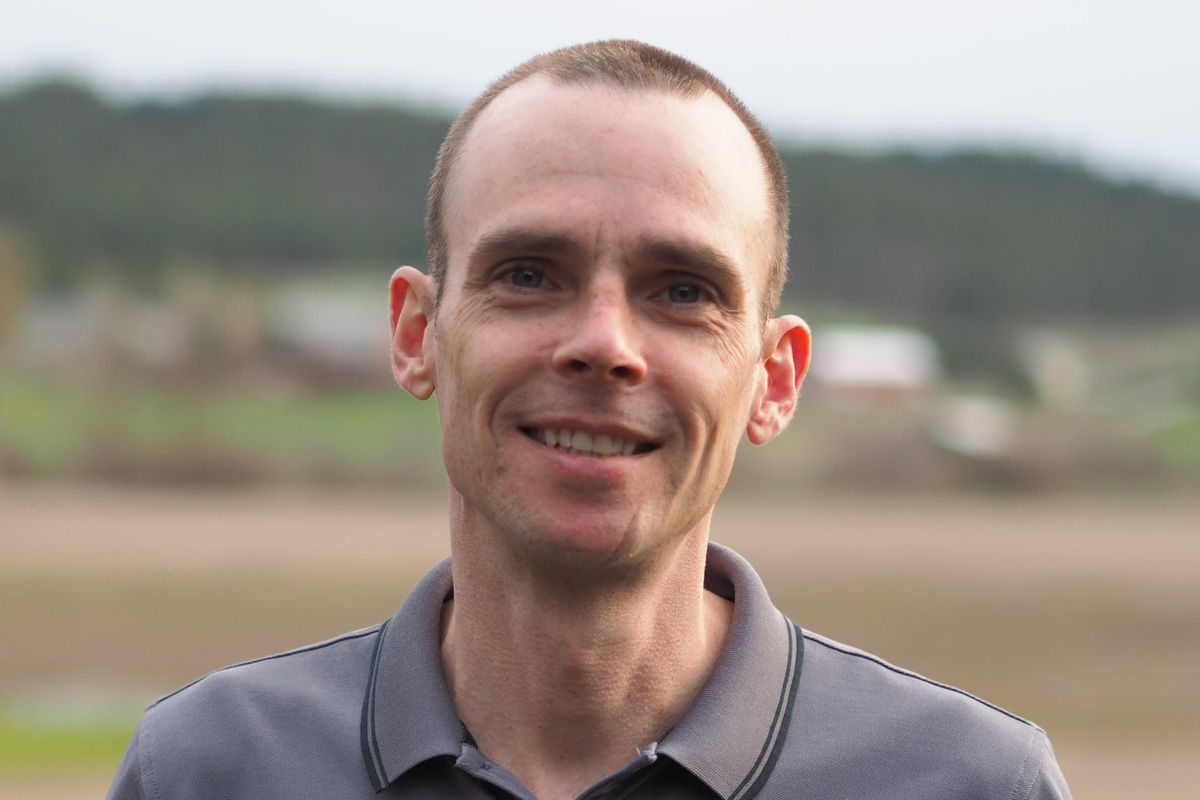In Spokane School Board race, it’s the hot-button issues that divide the candidates

The candidates for the only contested Spokane School Board seat on the November ballot agree on many key issues facing the district.
Both candidates are focused on addressing inequity and supporting special education students.
But when it comes to some of the hot-button, controversial topics facing Spokane Public Schools, incumbent Mike Wiser and challenger Jennifer Muroya Thomas have clear differences.
Wiser is open to adopting the “Get Real” sex education curriculum currently under consideration, though he wants to hear from a citizens committee before making a decision. The proposal has stirred controversy because it was designed in part by Planned Parenthood.
Thomas opposes the curriculum.
Wiser says the district is right to defer to the Spokane Regional Health District on whether unvaccinated students should be allowed to attend school during an outbreak.
Thomas said parents should be allowed to decide if their unvaccinated children will attend school during outbreaks.
And Wiser prefers to keep the district’s campus resource officers unarmed while Thomas says they should carry guns.
Since he replaced board member Bob Douhitt in March, Wiser said he’s realized certain issues won’t change easily or quickly.
“I’ve learned a lot, especially about the progress and challenges with discipline and special education and special needs,” he said.
Thomas believes their different life experiences set them apart.
“I’m always going to come from that place of the underdog,” she said. “And how can we support the kids that aren’t already thriving.”
Thomas is the director of business development for the Jonah Project and recently started her own consulting business. She is also the education subcommittee chairwoman for the Spokane Human Rights Commission.
Thomas said her background as a single mother with a child who qualifies for special education services gives her a grounded, hands-on perspective.
“His kids are in the APPLE Program and one of my daughters had an Individualized Education Plan,” Thomas said of Wiser.
Although the Spokane Public Schools’ APPLE Program is open to any student, Thomas said the extra parental support and participation required prevents some kids from attending the program. Thomas said she approves of the APPLE Program and doesn’t fault Wiser for sending his kids there. But, she does think it’s indicative of their different life experiences.
Although Thomas has lived near Rogers High School since 2013, her children attend school in the Central Valley School District. Thomas said when she got divorced she opted to keep her children in the schools they were in instead of disrupting them.
Thomas questions the implementation of the Spanish immersion language kindergarten. She believes the project, while good-intentioned, took resources from lower-income schools.
“I think that money could be spent better in our district when we already have limited funds,” she said.
Wiser is the father of two and the vice president of strategic planning for CHAS Health.
Wiser’s experience working with large health care systems translates well to the education sector, he said. Increasing the rigor of program evaluations, for instance, is “a key to making improvements that really affect a lot of students.”
And, while he doesn’t have the same life experiences or background as Thomas, he said he’s worked with all types of children as a parent volunteer.
Wiser said initiatives aimed at reducing the disproportionate discipline of minority and special education students will take time to truly work.
Although the district’s suspension, expulsion and arrest numbers all have fallen, he worries that that’s just indicative of a new focus on not suspending children, not representative of a fundamental structural change.
“In my opinion the decision should always be what’s best for the students,” he said.
Wiser would like to see a school program catering to special education students or other high-need students. He described the proposed program as a “step between” Eagle Peak, the district’s behavior intervention school, and a regular classroom.
In his election campaign, Wiser, 44, has the benefit of incumbency and the support of sitting board members. He’s received small campaign donations from board President Deanna Brower and fellow board member Sue Chapin.
Wiser sees those donations as “a vote of confidence” in their decision to appoint him to the board.
In the primary election Wiser received 56 percent of the vote.
Thomas knows she’s fighting an uphill battle. She received only 20 percent of the vote in the primary.
But, she points to her success fundraising and her passion for education and equality. She’s raised nearly as much as Wiser. As for sitting board members donating to Wiser’s campaign, she understands it, but isn’t thrilled.
“He’s their colleague right now,” Thomas said. “I understand. I get it but I don’t love it.”